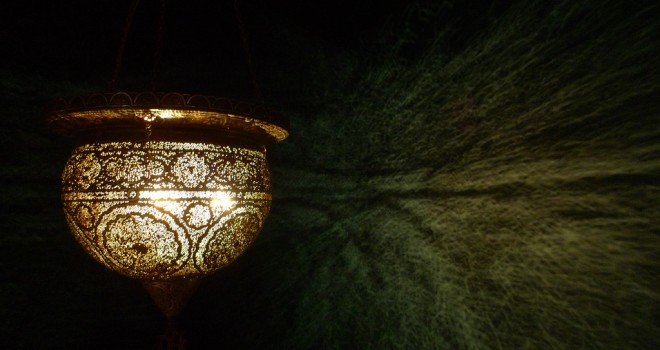
A cosmic spirituality
Ramadan is, for us Muslims, a month of worship. We fast, pray more and read holy texts. Fasting is both an act of worship in itself (a devotion to God), and a physical conditioning for higher psychological and spiritual states of mind. Our spirits are then more inclined to connect with God and act in altruistic and forgiving ways.
But Ramadan is also supposed to be a month of reflection, contemplation and meditation, of slowing down our lives, looking in ourselves and around us, appreciating this wonderful world that we have been given, and developing a greater sense of connection to the universe and to the Creator.
In the last century, science has uncovered an incredible cosmos with beautiful phenomena that are regulated by simple, precise and elegant laws. A century ago, we did not even know that our universe had more than one galaxy, let alone trillions.
We did not know that the universe has been expanding from a starting point, the Big Bang, which occurred 13.8 billion years ago. And only in the last 20 years have we discovered planets outside our solar system, so far about 4,000 out of the billions that we believe exist in our galaxy alone.
And with our refined understanding of the cosmos came the realization that our universe is fine-tuned for life, intelligence and consciousness — a fascinating discovery that scientists, philosophers and theologians are still unpacking.
The discoveries of this past century have also produced a general sense of awe in scientists and laymen alike, in believers and non-believers. The immensity of the universe, its diversity and richness, and its mind-boggling intricacies and subtleties have led us to redefine beauty, order, harmony, elegance, precision and unity.
Cosmology has also led us anew to humility and a new spiritual experience, which even non-theists are now reporting. Indeed, every new discovery has brought with it the realization that while our knowledge has grown faster and faster, what we know is a tiny fraction of what we do not know.
Ramadan is a month of worship but it is also a time for reflection, and for slowing down our lives and appreciating this wonderful world that we have been given.
As the late philanthropist Sir John Templeton wrote: “Already science increasingly reveals creations of awesome magnitude, intricacy, beauty, and order, and we sense that what lies beyond our instruments is vastly greater still. It is finally an experience that should bring us to our knees in humility, to worship the infinite, omniscient, eternal Creator. We sense that maybe the universe has been made in such a way that its meaning and purpose somehow involve us and demand our attention and worship and even our participation. It is a book of wonder which can invoke in us a new kind humility, a deep devotion to the Creator of the vast unseen…”
This cosmic sense of awe and wonder, indeed this cosmic spirituality, has also been felt by scientists who are not religious, at least not traditionally so. Albert Einstein wrote: “The scientist is possessed by the sense of universal causation… His religious feeling takes the form of a rapturous amazement at the harmony of natural law, which reveals an intelligence of such superiority that, compared with it, all the systematic thinking and acting of human beings is an utterly insignificant reflection.”
And in “The Varieties of Scientific Experience: A Personal View of the Search for God,” the even less religious Carl Sagan wrote: “I would suggest that science is, at least in my part, informed worship.” Sagan realized that science brings forth a new type of spirituality that could at least complement the spirituality of the traditional religions.
In “Pale Blue Dot,” he wrote: “A religion, old or new, that stressed the magnificence of the Universe as revealed by modern science might be able to draw forth reserves of reverence and awe hardly tapped by the conventional faiths.”
The Islamic tradition is replete with references to the cosmos and its harmony. The Qur’an calls on Muslims to reflect and draw lessons from this mesmerizing creation. It says: “Indeed, in the creation of the heavens and the earth and the alternation of the night and the day are signs for those of understanding… who reflect on the creation of the heavens and the earth, ‘Our Lord, You did not create this in vain… Glory to Thee!”
It also stresses the order and balance in nature: “Verily, all things have We created in proportion and measure.” In addition: “And on the earth We have produced all kinds of things in due balance.”
In the 12th century, Fakhr Al-Din Al-Razi, the great Muslim theologian and philosopher, insisted that each object in nature has its proper mode of physical existence among many possible ones, a mode that is precisely predetermined by the Creator. For example, celestial objects have precise orbits and space-time coordinates that show “a complete ordinance” and “a profound wisdom” — similar ideas to how we see the cosmos today.
Finally, the Qur’an reminds us to remain humble, for “you have received but little of knowledge.”
By Nidhal Guessoum, published in Arab News, May 20th 2018.
Nidhal Guessoum is a professor of astronomy and physics at the American University of Sharjah, UAE. Twitter at: www.twitter.com/@NidhalGuessoum.

